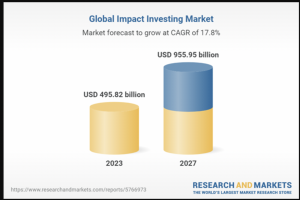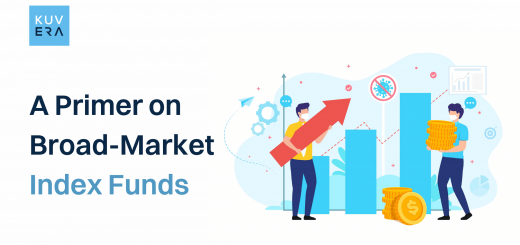In an era where conscious capitalism is gaining momentum, impact investing has emerged as a powerful financial strategy. Investors no longer view profit and purpose as opposing forces. Instead, they seek opportunities that not only promise financial returns but also contribute to a sustainable future.
This blog will delve into the world of impact investing, exploring its definition, examples, types, the distinction from ESG investing, profitability, and its promising future.
Definition of Impact Investing
Impact investing is an investment approach that seeks to generate measurable, beneficial social or environmental impacts alongside financial returns. Unlike traditional investing, where the primary focus is solely on financial gains, impact investing evaluates and integrates the potential positive effects on society or the environment into the investment decision-making process.
Examples of Impact Investing
1. Clean Energy: Investing in renewable energy projects like solar and wind farms that reduce carbon emissions and combat climate change.
2. Microfinance: Supporting micro-lending institutions that provide financial services to low-income entrepreneurs, empowering them to start or expand businesses.
3. Affordable Housing: Investing in real estate projects that create affordable housing options for underserved communities.
4. Healthcare Initiatives: Backing companies working on medical breakthroughs, affordable healthcare solutions, or initiatives to combat diseases like malaria.
Types of Impact Investing
Impact investments can take various forms, including:
1. Private Equity: Investing in private companies or startups that align with your impact goals.
2. Fixed Income: Purchasing bonds or debt instruments issued by organizations dedicated to positive social or environmental change.
3. Public Equities: Investing in publicly-traded companies recognized for their commitment to ESG (Environmental, Social, Governance) principles.
Impact Investing vs. ESG Investing
While impact investing and ESG investing share similar objectives, they differ in their approaches:
- Impact Investing: Focuses on actively seeking investments that have a measurable, positive impact on society or the environment.
- ESG Investing: Integrates Environmental, Social, and Governance factors into investment decisions but may not prioritize measurable impact as the primary goal.
Is Impact Investing Profitable?
Many skeptics wonder if pursuing a mission beyond profit can yield competitive returns. Research and real-world examples have shown that impact investing can indeed be profitable. Companies with strong ESG performance often exhibit robust financial performance and resilience in the face of economic challenges. Furthermore, as societal and environmental concerns grow, demand for impactful investments continues to rise, potentially increasing their long-term profitability.

The Future of Impact Investing
The future of impact investing looks promising for several reasons:
1.Mainstream Adoption: Impact investing is becoming increasingly mainstream as more investors recognize its potential for both financial and societal benefits.
2. Government Support: Governments worldwide are enacting policies and incentives that encourage impact investing.
3. Technological Advancements: Technology is facilitating the measurement and reporting of impact metrics, making it easier for investors to track their contributions.
4. Innovation: Innovations in financial products and services are expanding impact investment opportunities.
5. Climate Focus: Climate change is a pressing concern, driving investments in renewable energy and sustainability.
6. Millennial Influence: As millennials and Gen Z investors grow in number and influence, their preference for socially responsible investments is shaping the financial industry.
Impact investing in India
As per World Economic Forum, the impact investing landscape in India has seen remarkable growth in recent years, with substantial increases in big-ticket deals exceeding $10 million.
India, as an emerging market, presents a unique opportunity to address environmental and social challenges, particularly given its status as the most populous country globally. The country’s democratic setup, coupled with a young and skilled talent pool, has generated investor confidence. India’s rapid internet penetration and 5G technology have given rise to the “next half billion” narrative, focusing on the vast and swiftly expanding bottom half of the Indian economy.
Moreover, India’s digital penetration has enabled tech-driven businesses to scale their impact and drive innovation across sectors like climate tech and the future of work. Impact-oriented business models are diversifying, shifting away from microfinance towards technology-driven approaches, such as sustainable mobility and SME finance.
Investors are increasingly aligning impact with robust returns, as demonstrated by equity impact investments in India, which have generated an impressive overall internal rate of return of approximately 30% over the past decade. This has positively impacted over 500 million lives across the country.
The Indian impact investment ecosystem is maturing, supported by organizations like the IIC, which aims to increase private capital flow into social impact through research and advocacy. Domestic impact fund managers are gaining experience in sourcing financially sustainable impact enterprises and adopting better impact management practices to scale their portfolios.
Initiatives that are further fostering the growth-stage impact investing landscape
Atal Innovation Mission: Launched in 2016, this mission provides technical and infrastructure support to startups focused on positive social and environmental outcomes. It nurtures impact-driven startups specializing in energy, health, education, agriculture, and artificial intelligence.
Social Stock Exchange (SSE): SSE, approved by the Securities and Exchange Board of India (SEBI) in 2022, serves as a platform connecting investors with social enterprises dedicated to social welfare and environmental sustainability. It establishes a new asset class for growth-stage impact-driven enterprises.
The Samridhi Fund: Launched by the Small Industries Development Bank of India (SIDBI), this fund aims to provide capital to financially viable social enterprises. Government-backed funds like Samridhi can instill confidence in early-stage impact investors, encouraging their support for innovative companies with significant scaling potential.
The Indian environment is conducive for impact-focused limited partners and asset managers, both domestic and international, to back financially attractive and socially impactful companies with extensive target markets. As India’s impact investment market continues to evolve, it holds immense promise for driving positive change and financial returns.
Conclusion
Impact investing is more than just a financial strategy; it’s a vehicle for positive change. By aligning your investments with your values, you can contribute to addressing some of the world’s most pressing challenges while potentially achieving competitive financial returns. As impact investing gains momentum and innovation continues to drive the industry forward, it’s an exciting time to explore this transformative approach to finance.
Whether you’re passionate about clean energy, affordable healthcare, or empowering underserved communities, impact investing offers a way to make a difference and grow your wealth simultaneously. Join the growing community of impact investors and be a part of the change you want to see in the world.
Interested in how we think about the markets?
Read more: Zen And The Art Of Investing
Watch/hear on YouTube: Investing with legends series
Start investing through a platform that brings goal planning and investing to your fingertips. Visit kuvera.in to discover Direct Plans and Fixed Deposits and start investing today.











